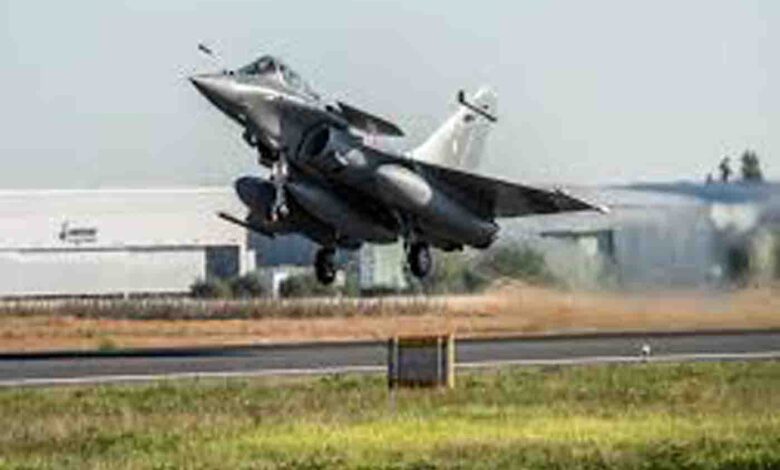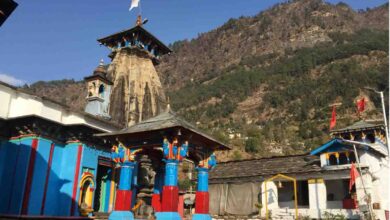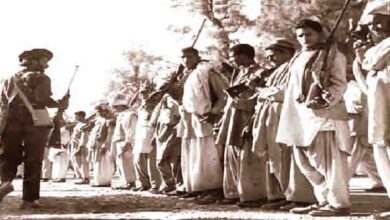Bravehearts- Our armed forces and their families

GUEST COLUMN
 Dr. Sona Kaushal Gupta
Dr. Sona Kaushal Gupta
War was nothing but just a name for many, till the Indo-Pak tensions escalated on the intervening night of May 6-7. It was a wakeup call for the youth, the Gen Y and Gen Z who lived a carefree life in an independent India oblivious of our past struggles for freedom. They have seen movies about our freedom fights but not many correlated it with reality. In the early hours of May 7 India carried out Operation Sindoor against terrorists in Pakistan and Pakistan-occupied Jammu and Kashmir in retaliation to their attack on our civilians in Pahalgam. In the following days, the two nuclear countries engaged in armed operations along the border. Everybody was then alert and on edge.
I started getting numerous calls from people who were feeling anxious, having panic attacks, growing suspicious at every loud sound and knock on the door and having breakdowns at the thought of impending doom. They said they had quickened heart beats, rapid breathing, sweating and palpitation.
“Pakistan will attack us and everyone will die,” said a distraught teary eyed 7-year old girl. She had heard of the conflict in school from her teachers and friends and the child was scared. Her mother had a tough time trying to convince her daughter that she was in no direct danger in her house in Thiruvananthapuram.
I got many more panic calls and I still get them although a ‘ceasefire’ has been declared. But some people are wary because of what they see and hear on TV. Another young man who lives in Delhi said he can’t sleep. He finds himself scrolling endlessly through social media, unsure of what is happening and what is true and what are rumours. He has terrifying nightmares of war scenes and wakes up sweating in the middle of the night.
The solution I tell my clients to their stress and anxiety is to stay away from the continuous 24/7 TV media coverage, social media exposure and emotionally charged content. My advice is that they should be aware of what is happening and see the news once or twice from credible sources and then take breaks and switch over to their daily chores and keep busy. Stop discussing or thinking of war persistently. Because this can overwhelm us with war-related fears and unpredictability like how far this will go, who will be affected, and what will be the long-term consequences. Do relaxation exercises and Yoga and meditation to calm yourself.
It is advisable to explain the situation in age-appropriate ways to children. If parents have anxiety it will pass on to their children so it’s important that parents be stress-free because young minds are highly impressionable. Reassure them of their safety by telling them stories of our soldiers’ bravery and have conversations with them rather than letting them absorb misinformation online or from peers. This is also the right time to teach children to pray for their country and soldiers and instil the feeling of patriotism in them and teach them to feel proud of their country, soldiers and to cherish the freedom which we attained with such difficulty.
The Indian Armed Forces and their families during wartime are the real heroes bearing silent battles with grace, grit, and great emotional strength. Their experience is a powerful blend of duty grit, sacrifice, love, courage and endurance.
Our soldiers are bravehearts who display exceptional courage and bravery especially in the face of danger and war. They risk their lives to protect their country and citizens and we salute them and bow our heads in gratitude for their dedication, courage and bravery. They are our real heroes and their courage has inspired millions. The families of our armed forces go through a wide spectrum of intense emotions during wartime, experiencing a blend of pride, anxiety, grit and resilience. Operation Sindoor is a live example of this. They stand as silent warriors—facing an inner war of emotions while their loved ones defend the nation at the frontlines. Their story is one of strength, grit, quiet courage and deep sacrifice—a vital pillar in India’s defense that deserves recognition and support.
These families often feel immense pride in their loved one’s service, sacrifice, and dedication to the nation. They have full faith in our country’s leadership, capabilities and decisions.
Army children learn to be fearless and brave and look up to their parent as a hero, and spouses often find strength in the uniformed commitment. Spouses often become single parents during deployment, juggling roles, responsibilities and emotional burdens alone. They learn to become fiercely independent, managing finances, household issues, and emotional needs of the family. In the meanwhile, every day becomes a countdown until they reunite. Families watch news, wait for updates, and remain positive. Their children likewise imbibe this quality of grit and perseverance from their parents. Military communities often form deep bonds, offering each other emotional support, practical help and a sense of belonging. Many army families have said that only another army family can truly understand their journey. Indian Army families often carry a deep-rooted sense of national pride. Despite long periods of staying alone they feel honoured that their loved ones are serving the nation during such a critical time. The uniform is sacred and many families see this as their own way of contributing to the country’s defence. Spouses and parents take on full domestic responsibilities, while also managing emotional well-being of the family. They bear the emotional weight quietly, especially in front of children or elders. Children may sometimes face confusion and worry in the absence of a parent but the army spouse manages all this with perseverance, patience and positivity. Families live in cantonments which are well equipped with hospitals, schools, welfare clubs, and groceries and supplies to cater to all their daily needs. Further, army families lean on each other—officers’ wives, soldiers’ families, and veterans often form tight-knit groups offering emotional and logistical support. Regimental centres and welfare organisations often step up, organising updates, briefings, and morale-boosting events. Then there are places of worship for all religions and many families turn to faith, prayer, and rituals—lighting lamps, visiting temples and reading scriptures. Communities hold mass prayer sessions and religious leaders often play a role in keeping the morale high.
Families may feel a sense of pride seeing their loved ones or other personnel featured in the news or praised on social media. They appreciate the love and affection showered on them by the public. They also feel proud that the soldiers are looked up as real heroes and role models by the common man and other celebrities.
Role of Indian leaders
In the scenario of an India-Pakistan war, the role of Indian leaders—political, military, and diplomatic—would be absolutely critical in shaping the course of the conflict, national morale and the eventual resolution. Indian leaders would be called not just to fight a war, but to preserve democracy, unity, dignity and peace in the face of profound adversity. In any war—especially between nuclear-capable neighbours like India and Pakistan—the role of leaders becomes not just strategic but deeply moral. They must protect the nation not just from external threats, but from internal division, panic and emotional collapse. The leadership defines whether the war is a short-lived defence operation or a prolonged tragedy. Long live India, our soldiers and countrymen.a
(The author is a neuro psychologist, founder of a crisis helpline and designated CBSE counsellor. Views expressed are personal)






